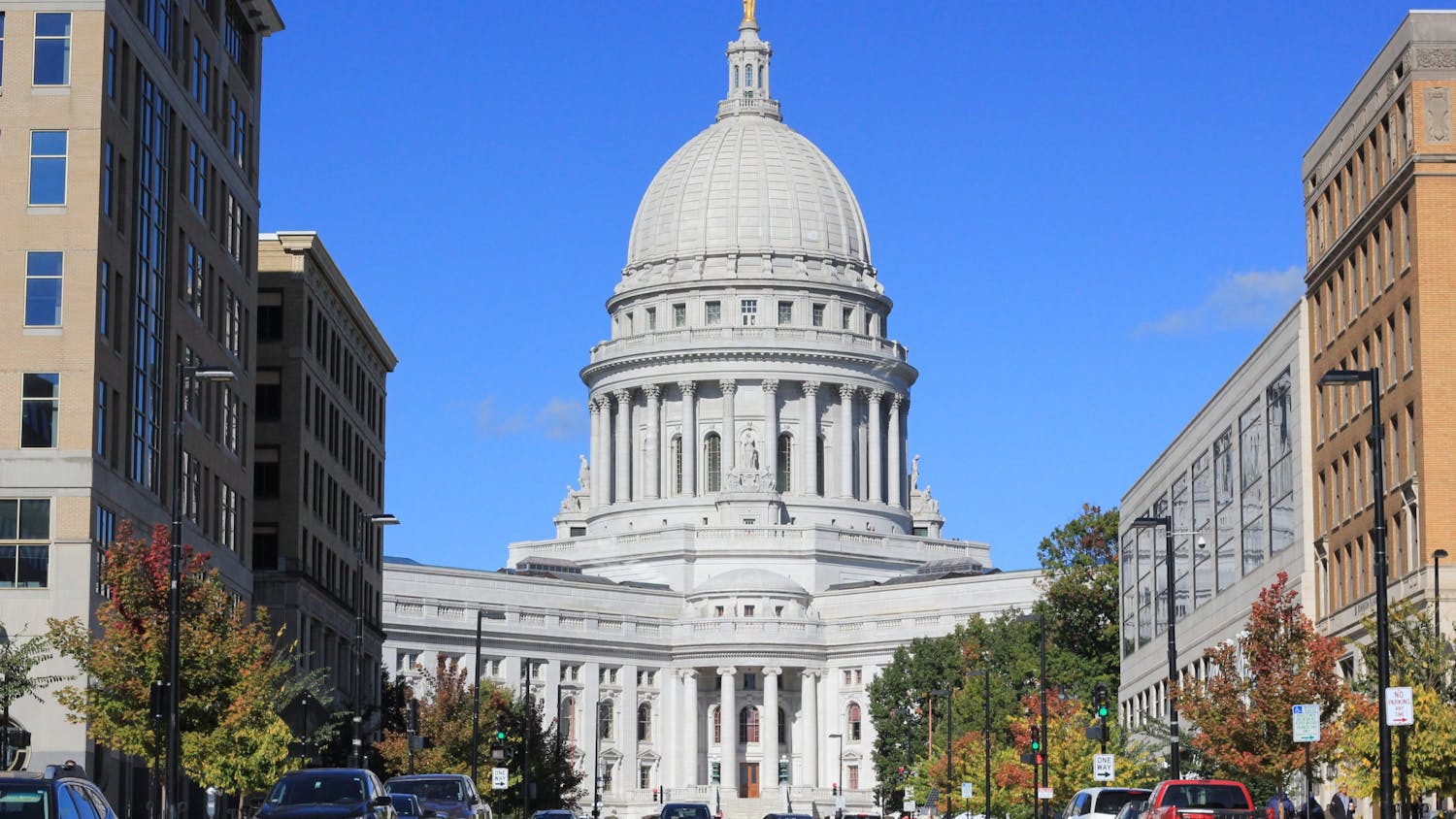Held in the Wisconsin Institute for Discovery (WID), the three panelists, Laura Helmuth, Alta Charo and Jo Handelsman, discussed how the increase of fake news stories has impacted the world of science journalism in the digital age.
The discussion ranged from misleading headlines to the closures of government agencies focused on preserving informational integrity, and a variety of audience questions included topics like conspiracy theories and anti-scientific rhetoric.
“Fake news is a ubiquitous term that we all love to hate,” said Sharon Dunwoody, professor of Journalism and Communications at UW-Madison and moderator for the panel.
In Handelsman’s opening statement, she discussed perhaps one of the most infamous cases of fake news – that being when media began circulating a non-peer reviewed study that cited a possible link between vaccines and autism. Though this study was quickly rebuked and rejected thoroughly by other scientists, Handelsman mentioned that the lasting damage of this study has created difficulties with non-vaccinated children for years following the incident.
Handelsman, the director of the WID, has a doctorate in molecular biology from UW and has previously served as chair of UW-Madison’s Bacteriology department. She was also previously the associate director for science in the White House Office of Science and Technology Policy. In 2011, she was awarded the Presidential Award for Science Mentoring.
She also discussed the recent impact that fake documentaries have had on the minds of the public, mentioning an example in which the Discovery Channel aired an entirely fake documentary focused on the possibility of mermaids being real. Though the production was technically filed as science fiction, its convincing documentary style fooled millions of viewers and drew one of the strongest ratings ever seen on the channel.
Helmuth, the Health, Science and Environment Editor for The Washington Post, is completing her tour of campus as the “science writer-in-residence” for UW’s fall semester. She mentioned how their coverage has largely shifted from covering traditional science publications to covering the politics of science in today’s government.
“We are in a golden era for debunking theories and exposing fraud for things like fake stem cell clinics,” said Helmuth.
The clinics she’s referring to are problematic start-up sites that promise their patients revolutionary therapy and treatments for things like cancer. The patients often receive no beneficial treatment in return, or worse, are left with permanent health damage.
One fraudulent clinic charged women thousands of dollars for “stem cell therapy” when the women were actually participating in a completely unregulated trial that left them blind after the procedure.
Helmuth also discussed the widespread distrust for journalists in science and mentioned the strategies The Washington Post has put into place to help validate their coverage.
One strategy she mentioned is being as transparent as possible in revealing where their information is sourced and holding confidently to scientific claims, despite some people dismissing the results.
“Standing up for what’s true and pointing out what’s false is something we all have to do,” Helmuth said, speaking to a room of journalists and science communicators.
Charo, UW-Madison’s Warren P. Knowles professor of Law and Bioethics, served on President Obama’s transition team, with her efforts focused on government agencies like the Food and Drug Administration and in policies like women’s reproductive health. Her message focused on the recent increase in exaggerated scientific results published in media.
She elaborated on the recent controversies of experts stepping beyond their expertise and “weaponizing their credentials” to discuss scientific topics they may not be fully qualified to give information on. This results in people believing the false claims of the individual.
The event was part of WID’s Science Café series, in which science topics are discussed in casual settings and opened to conversation with the audience. This form of discussion is held within communities across the world and proves popular with academics in cities like Madison.
In the final remarks of the discussion, the panelists added that there is a lot of work that still needs to be done to restore trust in traditional journalists.
“How to deal with the distortion of information is going to be the most challenging story of all,” Charo said.






